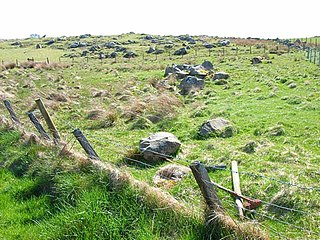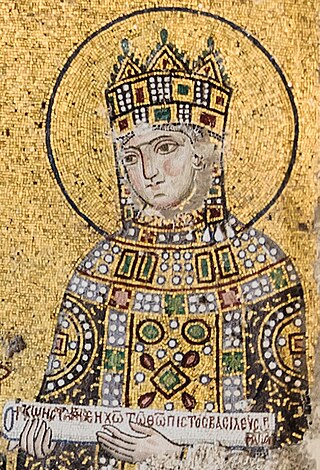Related Research Articles
Terry is a unisex given name, derived from French Thierry and Theodoric. It can also be used as a diminutive nickname for the names Teresa or Theresa (feminine) or Terence, Terrance or Terrier (masculine).
Natasha is a name of Slavic origin. The Slavic name is the diminutive form of Natalia.

Pollyanna is a 1913 novel by American author Eleanor H. Porter, considered a classic of children's literature. The book's success led to Porter soon writing a sequel, Pollyanna Grows Up (1915). Eleven more Pollyanna sequels, known as "Glad Books", were later published, most of them written by Elizabeth Borton or Harriet Lummis Smith. Further sequels followed, including Pollyanna Plays the Game by Colleen L. Reece, published in 1997. Due to the book's fame, "Pollyanna" has become a byword for someone who, like the title character, has an unfailingly optimistic outlook; a subconscious bias towards the positive is often described as the Pollyanna principle. Despite the current common use of the term to mean "excessively cheerful", Pollyanna and her father played the glad game as a method of coping with the real difficulties and sorrows that, along with luck and joy, shape every life.
Maggie is a common short form of the name Magdalena, Magnolia, Margaret, Marigold.
Katie is an English female name. It is a form of Katherine, Kate, Caitlin, Kathleen, Katey and their related forms. It is frequently used on its own.
Perkins is a surname derived from the Anglo-Saxon corruption of the kin of Pierre, introduced into England by the Norman Conquest. It is found throughout mid- and southern England.

Sarah is a common feminine given name of Hebrew origin. It derives its popularity from the biblical matriarch Sarah, the wife of Abraham and a major figure in the Abrahamic religions. It is a consistently popular given name across Europe, North America, and the Middle East — being commonly used as a female first name by Jews, Muslims, and Christians alike, and remaining popular also among non-religious members of cultures influenced by these religions.
Prince is a surname. Notable people with the surname include:
The name Myra was created by the 17th-century poet Fulke Greville 1st Barone Brooke (1554–1628). Its origins are unknown, though some speculate the created name is an anagram of the name Mary, a variant spelling of the Latin word myrrha, meaning myrrh, a fragrant resin obtained from a tree, or derived from the Latin mirari, meaning wonder, the same source from which William Shakespeare derived the invented name Miranda.

Rachel, meaning "ewe", is a feminine given name of Hebrew origin, popularized by the biblical figure Rachel, the wife of Israelite patriarch Jacob.

Stanley is a toponymic surname, a contraction of stan and leigh (meadow), later also being used as a masculine given name.
Warren is a common English and Irish surname and a masculine given name derived from the Norman family "de Warenne", a reference to a place called Varenne, a hamlet near Arques-la-Bataille, along the river Varenne in Normandy. The river name is thought to be derived from the continental Old Celtic Var- / Ver- "water, river", with a Germanic influence on the initial V- > W- after Warinna, from the Proto-Germanic war-, meaning "to protect or defend".

Molly is a diminutive of the feminine name Mary that, like other English diminutives in use since the Middle Ages, substituted l for r. English surnames such as Moll, Mollett, and Mollison are derived from Molly. Molly has also been used as a diminutive of Margaret and Martha since the 1700s and as an independent name since at least 1720. The name was more popular in the United States than elsewhere in the Anglosphere in the 1800s due to usage by Irish-American families and by Jewish American families who used Molly as an English version of Hebrew names such as Miriam and Malka. Its popularity with Americans was also influenced by stories about Molly Pitcher, a heroine of the American Revolutionary War.
Pollyanna is a best-selling 1913 novel by Eleanor H. Porter. As a feminine given name, Pollyanna is derived from the name Polly, which is also derived from the name Mary which could mean "sea", and combined with the name Anna which means "grace" in Hebrew. The variants of this name includes Anna Maria, Anne-Marie, Mariana, and Marianne.
Letty, Lettie, Letti or Lety as a female given name is a shortening of Leticia, Violet or Colette. It may refer to:

Emily is a feminine given name derived from the Roman family name "Aemilius", and is the feminine form of the name Emil.

Zoe, Zoey, Zoie, Zoi, Zoé or Zoë is a female first name of Greek origin, meaning "life". It is a popular name for girls in many countries, ranking among the top 100 names for girls born in the United States since 2000. It is also well used in other English-speaking countries including Australia, Canada, Ireland, New Zealand, and the United Kingdom, as well as in other countries including Belgium, Czech Republic, France, Hungary, Italy, Mexico, Netherlands, Spain, and Switzerland.

Ruth is a common female given name, noted from Ruth, the eponymous heroine of the eighth book of the Old Testament.
Polly is a female given name.
Chandler, and its variant spellings, is a family name that originated as an occupational surname in medieval England. It applied to a person involved in making or selling candles and similar articles. The earliest records as a surname are of Matthew le Candeler in London in 1274 and William le Chandeler in Essex in 1275. In the 1881 census of England, the surname Chandler was apparently used by over 0.3% of the population.
References
- ↑ Campbell, Mike. "Meaning, origin and history of the name Polly". Behind the Name. Retrieved 2022-08-18.